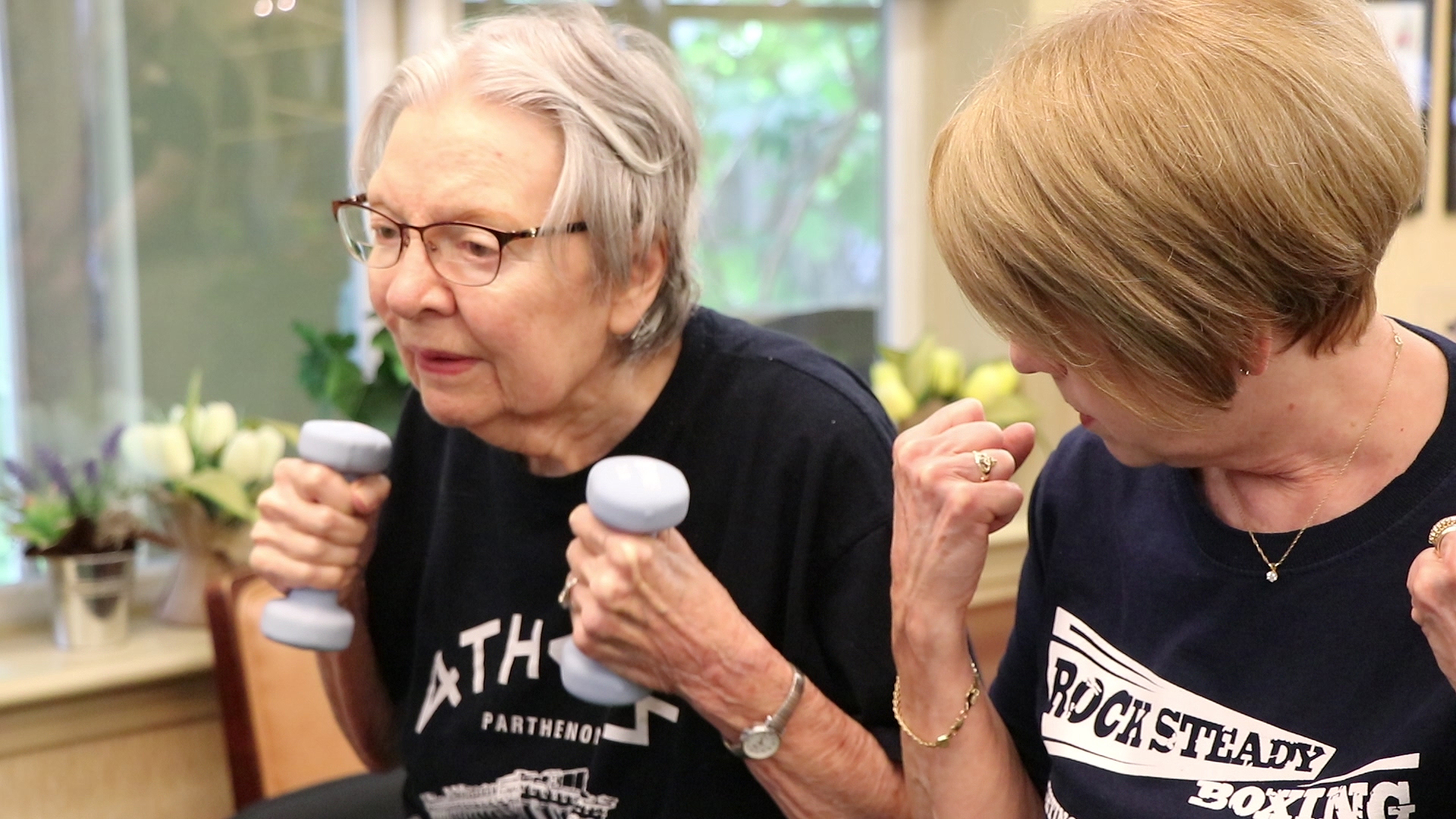At age 84 and with Parkinson’s disease taking its toll on her mobility, Shirley Mabry could hardly walk without assistance, let alone get down on the floor to exercise.
That was before she was introduced to a program of exercise, motion and multitasking called Rock Steady Boxing, given right at her home at The Chelsea at Tinton Falls senior living residence.
“The first time, I was apprehensive because I’m not really nimble in my movements,” she recalled. “But as I was going each week, I was getting more confident. And I can now turn over in bed on both sides. And little things like that give me a feeling of optimism.”
“Boxing is just one component” said Robin Moran, the Chelsea’s lifestyle assistant who spent two days in Indianapolis at Rock Steady Boxing headquarters becoming a certified coach. “The combination of the exercises are things that work on balance, coordination and strength, as well as voice activation. A lot of yelling goes on – it’s a loud thing, to have a stronger voice.”
Moran’s partner in guiding the class is Stephany Garcia, a physical therapist from Fox
Rehabilitation, a clinical partner at all of Chelsea’s assisted living communities.
“It’s great for me to use what I have in my toolbox as a physical therapist to create exercises that are specific to clients that have Parkinson’s disease,” Garcia said, “creating an exercise program that’s high intensity for individuals of all ages because we can take as young as adults in their 20’s to adults in their 90’s.”
Rock Steady Boxing is offered free of charge to Chelsea Senior Living residents with Parkinson’s disease. Additionally, Chelsea underwrites the cost for three other individuals from the surrounding Tinton Falls community.
As for the program’s effectiveness, there seems to be no doubt about that in the minds of the participants and the experts.
“Their range of motion is improving dramatically,” Garcia said. “We’re seeing improvements in strength, the ability to get up from chairs. We’re seeing them walk around. Their balance is better. They’re not tripping as much. They’re not having as many falls. So, on a grand scale, everyone’s improved, I would say, from day one.”
“It’s made me more independent,” Mabry said. “I use the walker, but it’s now my
assistant instead of my primary.”
For Moran, whose daily work is all about improving the lives of seniors through
meaningful activities and recreation, Rock Steady Boxing has turned out to be one of her most rewarding pursuits. “It touches my heart to see how this can help people improve their daily life; to have the strength and coordination and dexterity to have basic life skills, and to slow the progress of this disease.”

